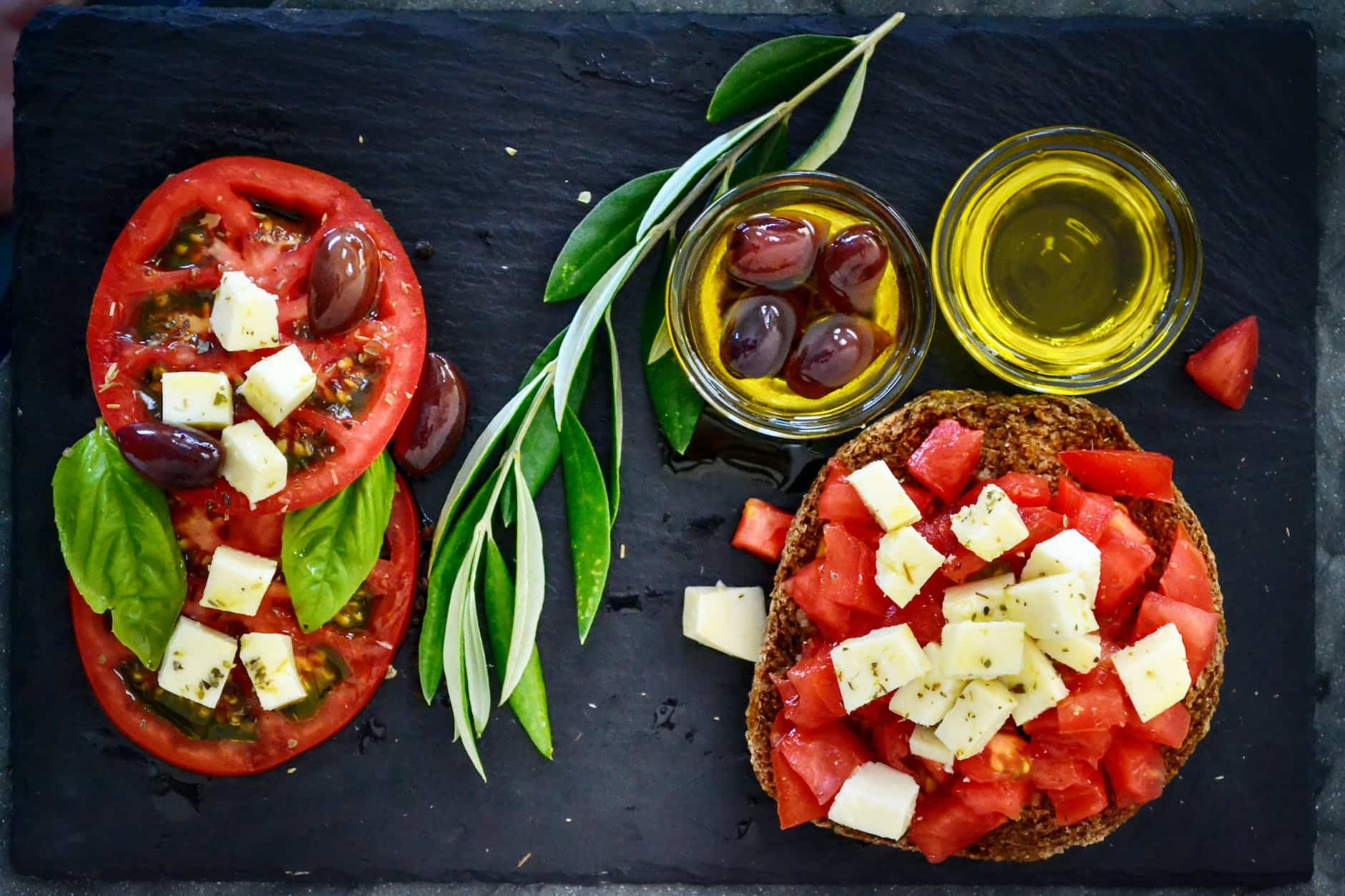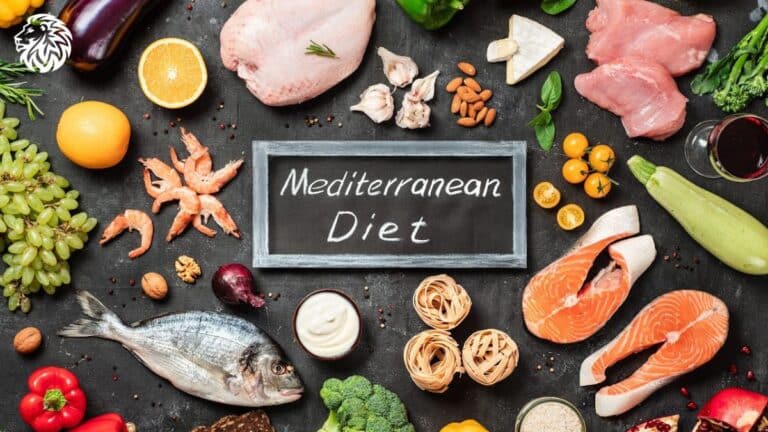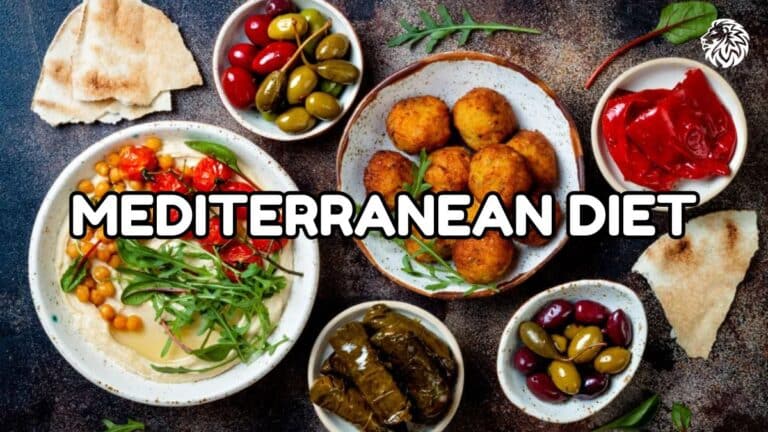Do you find yourself feeling exhausted and frustrated by the endless stream of fad diets that pledge speedy weight loss, yet seldom deliver long-term outcomes? If so, you might want to consider the Mediterranean diet. This scrumptious and healthy way of shedding those extra pounds and boosting your overall health is about much more than just the food you consume. It is also centered on a sustainable way of life that accentuates physical activity, stress reduction, and socialization. Within the context of this article, we will delve into the reality of the Mediterranean diet and how it can help you reach your weight loss objectives.
Key Takeaways
- The Mediterranean diet is a sustainable and enjoyable way to lose weight that is based on a healthy and delicious meal plan.
- The diet focuses on whole, nutrient-dense foods that are filling and satisfying and does not require the abandonment of entire food groups or drastic reductions in calorie intake.
- Studies have shown that people who follow the Mediterranean diet lose more weight and are more likely to keep it off compared to those who follow a standard low-fat diet.
- Incorporating the Mediterranean diet into your weight loss journey is easy and delicious, and can be done by focusing on plant-based foods, healthy fats, and lean sources of protein, while reducing intake of red meat and processed foods, and staying physically active.
What is the Mediterranean Diet?
The Mediterranean diet is a dietary regimen that is inspired by the customary culinary practices of nations found in the environs of the Mediterranean Sea, which include Italy, Greece, Spain, and Turkey. This eating plan is defined by a cornucopia of fresh fruits and vegetables, whole grains, legumes, nuts, and healthy fats such as olive oil and fish. It limits red meat consumption while allowing moderate amounts of cheese and yogurt. Furthermore, the Mediterranean diet encourages moderate drinking of red wine and promotes physical activity.
The Science Behind the Mediterranean Diet
Numerous studies have shown that the Mediterranean diet is an effective method of weight loss that also reduces the risk of chronic diseases such as heart disease, diabetes, and cancer. The emphasis on plant-based foods and healthy fats has been proven to reduce inflammation and improve blood sugar control. Additionally, the Mediterranean diet is rich in fiber, which promotes feelings of fullness and reduces overall calorie intake.
Benefits of the Mediterranean Diet for Weight Loss
The Mediterranean diet is a sustainable and pleasurable approach to weight loss. Unlike restrictive fad diets that demand the abandonment of entire food groups or severe reductions in calorie intake, the Mediterranean diet centers on whole, nutrient-dense foods that are both satiating and filling. Studies have proven that individuals who adopt the Mediterranean diet lose more weight and are more likely to keep that weight loss over time compared to those who follow a conventional low-fat diet.
How to Incorporate the Mediterranean Diet into Your Weight Loss Journey
Integrating the Mediterranean diet into your weight loss journey is straightforward and delicious. Start by concentrating on plant-based foods such as fruits, vegetables, whole grains, and legumes. Add healthy fats such as olive oil, nuts, and seeds to your meals. Decrease your consumption of red meat and processed foods while opting for lean sources of protein such as fish, chicken, and eggs. Partake in moderate amounts of cheese and yogurt and imbibe red wine in moderation. Remember to stay physically active and engage in activities such as yoga or meditation to minimize stress levels.
Common Misconceptions About the Mediterranean Diet

Despite its proven health benefits, there are several common misconceptions about the Mediterranean diet.
It’s Expensive
Contrary to popular belief, the Mediterranean diet does not have to be expensive. Many of the staples of the Mediterranean diet, such as whole grains, legumes, and fresh fruits and vegetables, are affordable and widely available. Buying in-season produce and shopping at farmers’ markets can also help reduce costs.
It’s Only for People Who Live in the Mediterranean
The Mediterranean diet is not just for people who live in the Mediterranean. With the availability of fresh produce and healthy fats, anyone can incorporate the Mediterranean diet into their lifestyle, regardless of where they live.
It’s Too High in Fat
The Mediterranean diet is not overly high in fat, but it does place an emphasis on healthy fats like those found in fish, nuts, and olive oil. The diet emphasizes consuming a balance of macronutrients, such as protein, healthy fats, and complex carbohydrates. Despite including healthy fats, studies have found that the Mediterranean diet can lower the risk of heart disease and other chronic conditions.
Conclusion

The Mediterranean diet is a sustainable way of life that supports general health and well-being, not just a set of recipes. The Mediterranean diet can aid in your weight loss efforts by emphasizing whole, nutrient-dense foods, and healthy fats in a delicious and healthy manner. Make the diet work for you by including your favorite foods. You can achieve long-term weight loss and a healthier lifestyle by adhering to the tenets of the Mediterranean diet.
Frequently Asked Questions about the Mediterranean Diet for Weight Loss
Is the Mediterranean diet only for weight loss?
No, the Mediterranean diet is not only for weight loss. It is a lifestyle that promotes overall health and well-being, including reducing the risk of chronic diseases such as heart disease and diabetes.
Can I still enjoy my favorite foods while following the Mediterranean diet?
Yes, the Mediterranean diet is not about restriction, but rather about balance and moderation. You can still enjoy your favorite foods in moderation while following the Mediterranean diet.
Can I follow the Mediterranean diet if I am vegetarian or vegan?
Yes, the Mediterranean diet can be adapted to accommodate a vegetarian or vegan lifestyle. Plant-based sources of protein such as legumes and nuts can be substituted for meat, and dairy products can be replaced with alternatives such as soy or almond milk.
Is it necessary to drink red wine while following the Mediterranean diet?
No, it is not necessary to drink red wine while following the Mediterranean diet. Red wine is simply an optional part of the diet and should be consumed in moderation.
How long does it take to see weight loss results on the Mediterranean diet?
Results may vary, but studies have shown that following the Mediterranean diet can result in sustainable weight loss over time. It is important to remember that weight loss is a gradual process, and incorporating other healthy lifestyle habits such as exercise and stress reduction can also contribute to success.







